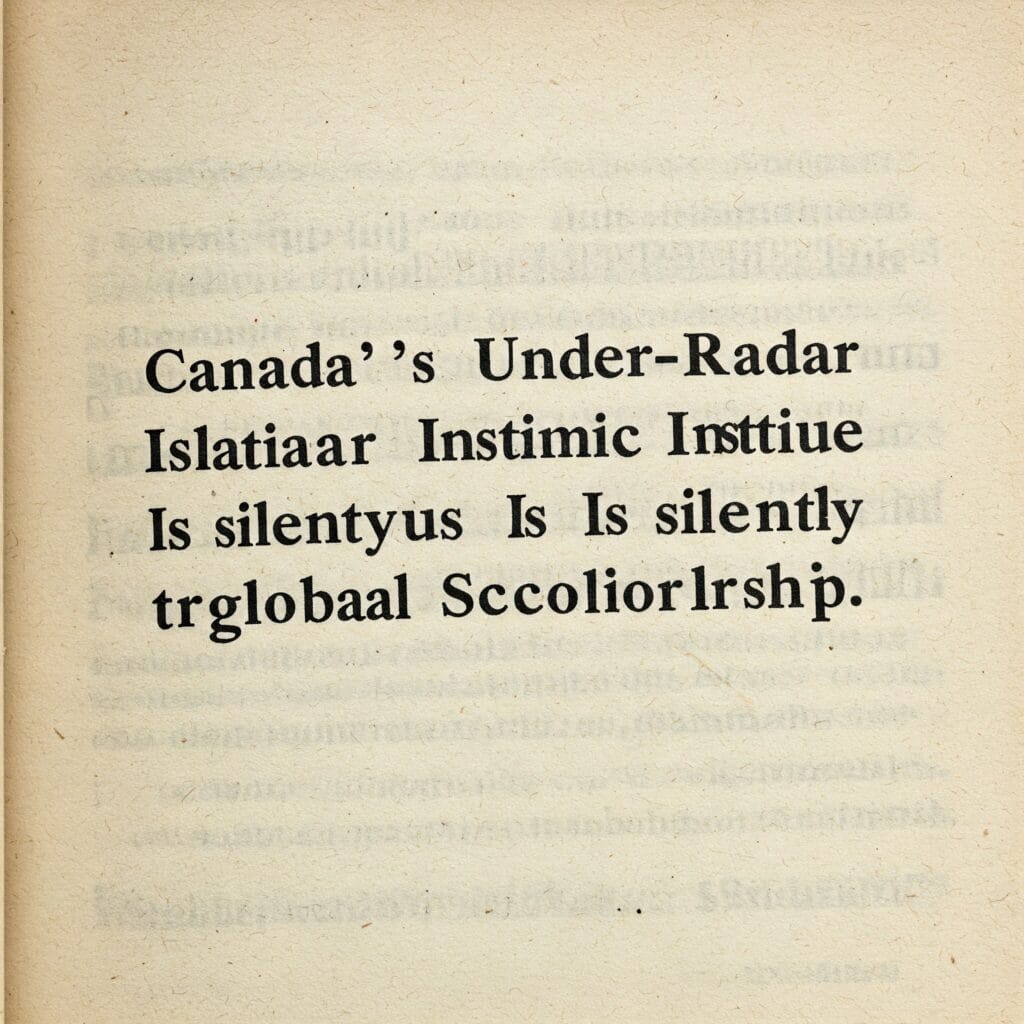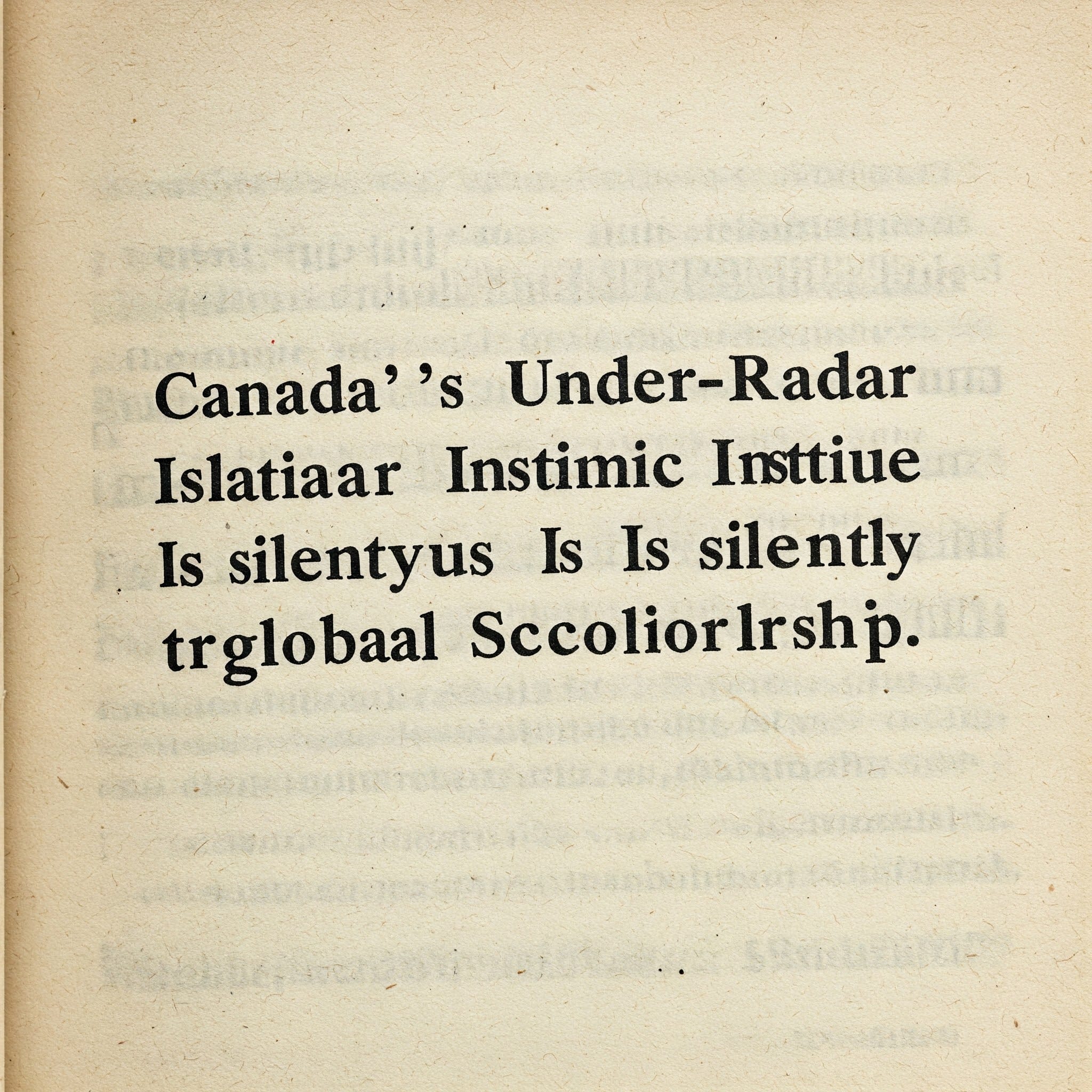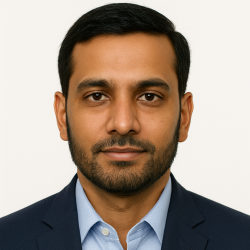In the heart of Scarborough, a suburb of Toronto, lies a lesser-known yet profoundly impactful institution: the Islamic Institute of Toronto (IIT). Established in 1996, this non-profit Islamic educational institute has quietly emerged as a significant hub for Islamic scholarship, community leadership, and cultural engagement. While it may not command the global spotlight of larger universities, the IIT’s focused programs, diverse student body, and commitment to bridging traditional Islamic teachings with contemporary challenges are reshaping Islamic education and influencing scholars worldwide. This comprehensive guide explores how the IIT, a hidden gem in Canada’s educational landscape, is making a global impact in 2025, delving into its academic offerings, cultural contributions, and role in fostering inclusive communities.

The Islamic Institute of Toronto: An Overview
The Islamic Institute of Toronto, located at 1630 Neilson Road, Scarborough, Ontario, is more than a traditional educational institution. It serves as a multifaceted community hub, encompassing a mosque, conference center, gymnasium, library, and plans for an Islamic high school. Founded to address the educational and spiritual needs of Canada’s growing Muslim population—4.9% of the population, or roughly 1.8 million people, according to the 2025 Census—the IIT has evolved into a beacon of Islamic learning. Its mission is to nurture intellectual, spiritual, and civic growth, producing graduates who are confident in their Muslim identity and equipped to contribute to Canadian and global societies.
Unlike mainstream universities offering Islamic studies (e.g., University of Toronto, McGill), the IIT is a community-driven, faith-based institution emphasizing practical Islamic scholarship. Its curriculum focuses on Quranic studies, Islamic jurisprudence (fiqh), Arabic, and leadership training, tailored to both local and international students. The institute’s modest campus belies its ambitious vision: to cultivate a generation of Muslim scholars and leaders who can navigate the complexities of the modern world while remaining rooted in Islamic principles.
Why the IIT Stands Out
1. Comprehensive and Accessible Curriculum
The IIT offers a range of certificate programs designed to make Islamic education accessible to diverse learners, from youth to working professionals. Key faculties include:
- Faculty of Quranic Studies: Offers certificates in understanding the Quran, its revelation, transmission, and recitation (tajweed and qirat). Courses emphasize memorization, exegesis (tafsir), and practical application.
- Faculty of Islamic Studies: Provides Level One and Level Two certificates covering Islamic faith, history, and jurisprudence, equipping students to lead communities or teach.
- Arabic Language Programs: Includes Classical Arabic, Access to Quranic Arabic, and Modern Standard Arabic, with fees around CAD 70 per course, making learning affordable.
The IIT’s flexible delivery—offering in-person, online, and hybrid classes—caters to global students, with programs attracting learners from South Asia, the Middle East, and Africa. Its emphasis on practical skills, such as imam training and community leadership, ensures graduates can serve mosques and organizations worldwide.
Impact: By blending traditional scholarship with modern accessibility, the IIT trains scholars who address contemporary issues like ethics, social justice, and interfaith dialogue, influencing Islamic thought globally.
2. Global Reach Through Modest Means
Despite its small size, the IIT has a disproportionate global impact. Its online programs, launched during the COVID-19 pandemic, have expanded its reach, allowing students from countries like Pakistan, Nigeria, and Indonesia to enroll. The institute’s YouTube channel and digital services, including virtual prayer sessions and lectures, have garnered thousands of views, spreading its teachings far beyond Scarborough.
- International Students: The IIT’s affordable fees and lack of formal sponsorship requirements make it accessible to international learners, unlike costlier mainstream universities.
- Community Leadership: Graduates often return to their home countries or serve in diaspora communities, acting as imams, educators, or advocates. For example, IIT-trained scholars lead mosques in the Greater Toronto Area, which hosts 10% of Canada’s Muslim population.
Impact: The IIT’s global footprint, achieved through digital innovation and community-driven education, positions it as a quiet yet powerful force in Islamic scholarship.
3. Fostering Cultural and Interfaith Dialogue
Canada’s multicultural ethos, enshrined in the 1988 Multiculturalism Act, provides fertile ground for the IIT to foster cultural exchange. The institute actively engages in interfaith and civic initiatives, strengthening ties between Muslims and other communities.
- Interfaith Events: The IIT hosts dialogues with Christian and Jewish groups, promoting mutual understanding. In 2013, it funded a Muslim prayer space at Emmanuel College, a Christian theological school, exemplifying cross-faith collaboration.
- Community Service: During the COVID-19 pandemic, the IIT transformed its campus into a pop-up testing center, serving Scarborough’s diverse population. It also offers youth programs and women’s initiatives, empowering marginalized groups.
- Anti-Islamophobia Advocacy: In response to rising Islamophobia—evidenced by a 2017 Quebec mosque shooting that killed six Muslims—the IIT denounced violence and promoted education to counter stereotypes.
Impact: By bridging cultural divides, the IIT shapes a generation of Muslims who are proud Canadians (83% of Canadian Muslims express national pride, per a 2016 Environics poll) and global citizens, influencing inclusive narratives worldwide.
4. Empowering Women and Youth
The IIT places significant emphasis on empowering women and youth, addressing gaps in traditional Islamic education.
- Women’s Education: Programs like sisters’ Quran circles and leadership workshops encourage female scholarship, inspired by institutions like Al-Huda International. Graduates often lead women’s groups or teach in madrasas.
- Youth Engagement: The IIT Academy, an elementary Islamic school, nurtures young Muslims with a curriculum blending Islamic values and Canadian standards. Extracurriculars like the Anjuman program (bi-weekly oratory and Quranic recitation) build confidence and identity.
Impact: By empowering women and youth, the IIT cultivates diverse voices in Islamic scholarship, influencing global communities where such representation is often limited.
5. Addressing Contemporary Challenges
The IIT’s curriculum tackles modern issues, ensuring its scholarship remains relevant. Courses explore Islamic perspectives on bioethics, environmental stewardship, and technology, preparing students to address 21st-century challenges.
- Social Justice: The IIT’s 2005 condemnation of terrorism, alongside other Canadian imams, reflects its commitment to ethical leadership. It trains students to counter extremism through education and dialogue.
- Integration: Programs emphasize navigating Canadian legal and social systems, enabling graduates to advocate for Muslim rights while contributing to society.
Impact: By addressing contemporary issues, the IIT produces scholars who influence global Islamic discourse, offering nuanced perspectives on faith and modernity.
Challenges and Solutions
The IIT faces several challenges as it expands its influence:
- Limited Recognition: As a non-accredited institution, its certificates may not be recognized in mainstream job markets.
Solution: Partner with accredited universities (e.g., University of Toronto) for dual-degree programs or credit transfers, enhancing graduate opportunities. - Funding Constraints: Relying on community donations limits infrastructure growth, with Phase One of its high school project still in progress.
Solution: Seek government grants, private scholarships, or international partnerships, as seen with Saudi funding for other Canadian Islamic schools. - Islamophobia: Despite Canada’s inclusivity, Islamophobia persists, with 36.6% of Muslim students at McGill and Concordia reporting discrimination in a 2015 survey.
Solution: Expand anti-Islamophobia workshops and interfaith initiatives, building on the IIT’s existing community outreach. - Balancing Tradition and Modernity: Integrating Islamic teachings with contemporary issues can spark debate among conservative and progressive Muslims.
Solution: Maintain a balanced curriculum, as the IIT does, emphasizing critical thinking and contextual scholarship.
Cultural and Community Context
The IIT operates within Canada’s rich Islamic heritage, which dates back to the first mosque, Al-Rashid Mosque (1938), and the first madrasa, Al-Rashid Islamic Institute (1983). Toronto, with 424,925 Muslims (7.7% of the population in 2011), is a vibrant hub for Islamic culture, hosting mosques like Jami Mosque and the Bosnian Islamic Centre. The IIT’s community engagement—through Ramadan iftars, youth sports leagues, and public lectures—strengthens ties with Toronto’s diverse Muslim diaspora, including Pakistani, Bangladeshi, and Somali communities. Its collaboration with organizations like the Muslim Students Association and the Canadian Islamic Broadcasting Network amplifies its cultural impact.
Global Influence of the IIT
The IIT’s influence extends beyond Canada through its graduates and digital presence:
- Scholarly Contributions: Alumni serve as imams, educators, and community leaders in countries like Pakistan, Nigeria, and the UAE, spreading the IIT’s balanced approach to Islamic scholarship.
- Digital Outreach: Online lectures and Quranic recitations reach global audiences, with the IIT’s YouTube channel fostering a virtual community of learners.
- Policy Advocacy: By training leaders who engage in Canadian civic life, the IIT indirectly influences global Muslim diaspora policies, promoting integration and inclusion.
Conclusion
The Islamic Institute of Toronto, though hidden in the broader academic landscape, is quietly shaping global Islamic scholarship through its accessible education, cultural engagement, and commitment to modern challenges. By training diverse scholars, empowering women and youth, and fostering interfaith dialogue, the IIT bridges traditional Islamic teachings with contemporary needs. Its global reach, achieved through modest means, underscores its role as a pivotal hub for Muslim intellectual and spiritual growth. As Canada’s Muslim population grows and the demand for authentic Islamic education rises, the IIT’s influence will only expand, proving that even a small institution can cast a long shadow in the world of Islamic scholarship. May its efforts continue to enlighten minds and unite communities. Ameen.
Further Resources
- Websites: islamicinstitute.ca, zabihah.com, halaltrip.com
- Organizations: Islamic Community Center of Phoenix, Muslim Students Association
- Scholarships: Studyportals Scholarship, Inspirit Foundation Grants
- Community: Jami Mosque (Toronto), Canadian Islamic Broadcasting Network
Must read:
- Top 10 Halal Certified Dining Spots in India – Inspired by Lesson Islam
- Top 10 Halal Dining Destinations in Phoenix: 2025 Edition
- Forms of Zakat in Islam and Their Role in Everyday Muslim Life – Islamic Teachings
FAQs
u003cstrongu003eWhat is the Islamic Institute of Toronto (IIT)?u003c/strongu003e
The IIT is a non-profit Islamic educational institute in Scarborough, Toronto, offering certificate programs in Quranic studies, Islamic jurisprudence, Arabic, and leadership training since 1996.
u003cstrongu003eWhy is the IIT considered a hidden gem?u003c/strongu003e
Despite its modest size, the IIT has a global impact through accessible education, online programs, and training scholars who serve communities in Canada and abroad.
u003cstrongu003eWhat programs does the IIT offer?u003c/strongu003e
Programs include Quranic studies (tafsir, tajweed), Islamic studies (faith, history, fiqh), and Arabic language (Classical, Quranic, Modern Standard), with in-person and online options.
u003cstrongu003eWho attends the IIT?u003c/strongu003e
A diverse mix of Canadian-born Muslims and international students from countries like Pakistan, Nigeria, and Indonesia, fostering a global learning community.
u003cstrongu003eHow does the IIT contribute to global Islamic scholarship?u003c/strongu003e
It trains scholars, imams, and leaders who serve worldwide, offers online lectures reaching global audiences, and addresses modern issues like ethics and social justice.


Post Comment